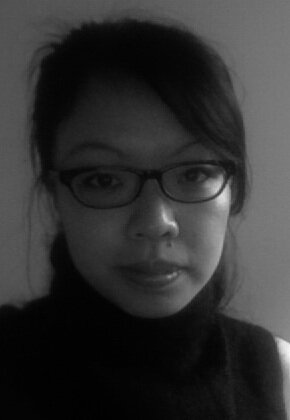Is This the Language of Peace?
As the international community hails the jailed Chinese political dissident Liu Xiaobo for winning this year's Nobel Peace Prize, his militant pro-war stance seems to have been lost in translation.
Consider these words:
无论倒萨的行动要冒的多大风险,不行动的风险将更为巨大,二战和9•11就是明证!
所以,无论如何,倒萨之战是正义的!布什总统的决定是正确的!
"No matter how risky it will be to topple Saddam, the risk of not doing anything will be even greater, as proven by World War Two and September 11! Hence no matter what, the war to topple Saddam is just! President Bush's decision is just!"
What would you say if I told you that they belong to this year's Nobel Peace Prize winner, Chinese dissident Liu Xiaobo?
Consider these words:
无论倒萨的行动要冒的多大风险,不行动的风险将更为巨大,二战和9•11就是明证!
所以,无论如何,倒萨之战是正义的!布什总统的决定是正确的!
"No matter how risky it will be to topple Saddam, the risk of not doing anything will be even greater, as proven by World War Two and September 11! Hence no matter what, the war to topple Saddam is just! President Bush's decision is just!"
What would you say if I told you that they belong to this year's Nobel Peace Prize winner, Chinese dissident Liu Xiaobo?
The paragraph above was taken from an essay attributed to him in October 2004, entitled 伊战与美国大选, Iraq and the US elections.
In the piece he explained his support for the much-criticised US president.
布什象所有负责任的西方大国领袖一样,把向世界推广“自由民主”视为“国家利益”的重要组成部分,把铲除邪恶政权视为推广自由民主和 维护世界和平的主要手 段。因为,“自由民主”具有普世价值,世界上所有的人——不分种族、文化、国别、宗教等的差异——皆有资格享受自由生活和民主制度。 所以,谋求连任的布什 坚持倒萨之战乃正确的选择,即便没有找到大规模武器,铲除萨达姆暴政和建立自由伊拉克,进而在整个中东地区推动自由民主,便足以作为 倒萨之战的理由。
"Bush, like all responsible leaders of the Western powers, views promoting 'freedom and democracy' in the world an important component of 'national interest', removing evil regimes a way of promoting freedom and democracy and a technique in maintaining world peace. Because 'freedom and democracy' have universal value, every person in the world - regardless of race, culture, nationality and religion - are eligible to enjoy a free life and democratic rule.
"Hence, the insistence of Bush - who is seeking re-election and persists in the battle to topple Saddam - is the right choice, even if weapons of mass destruction are not found, ridding the tyrannical rule of Saddam, pushing the whole Middle East regime towards freedom and democracy, is sufficient grounds for the battle to topple Saddam."
These comments were published just months after news broke that US soldiers were abusing Iraqi prisoners at Abu Ghraib.
Other essays like the one above published in a Hong Kong magazine have been attributed to Liu. In these pieces he unequivocally supported Bush's campaign to topple Saddam Hussein, even if it had been carried out on the false pretext of eliminating Iraq's weapons of mass destruction.
Yet, with no apparent irony, Thobjoern Jagland, the chairman of the Norwegian Nobel committee, declared that the committee was honouring Liu for his "long and non-violent struggle for fundamental human rights in China".
Apparently it didn't matter that Liu’s belief in "non-violent struggle" did not necessarily apply in all situations.
Are you a peaceful man?

Liu Xiaobo is a literary professor and an outspoken critic of the Chinese Communist Party. In 1989, when he got news of pro-democracy students demonstrating in Beijing's Tiananmen Square, he left his studies at Columbia University in the US to express his solidarity with his fellow Chinese. He was arrested and then detained.
He was to spend much of the 1990s in jail, labour camps or under house arrest. In 2008 he was again arrested, this time for co-authoring the 08 Charter, a manifesto calling for greater freedom, respect of human rights and reform in China.
Liu went on trial in December 2009, during which he made a statement that was to be his last public address before he began his prison term.
The speech was eloquent and full of compassion for his persecutors. For example: "But I want to tell those who robbed me of my right to political freedom ….. I do not have enemies, neither am I vengeful. All the policemen who jailed me, arrested me and interrogated me, the prosecutors who charged me, and the judges who tried me, they are not my enemies. Though I cannot accept your detention, arrest, indictment and verdict, I respect your professions and your characters..."
He went on to talk about how "vengefulness can eat away at a person's intelligence and conscience" and how enmity will " destroy a society's magnanimity and humanity". Hence he chose to "rise above" and "face the hostility of the governing leadership with kindness, and use love to remove the hatred."
This speech has been used by the Western media to show what Liu stands for. Less attention has been paid, however, to his articles that showed more controversial viewpoints.
Peace and Democracy, How It All Adds Up
Without a doubt, Liu has been a strong advocate for freedom and democracy. But peace?
In his will, Alfred Nobel deemed that the Peace Prize was to be awarded to the person who "shall have done the most or the best work for fraternity between nations, for the abolition or reduction of standing armies and for the holding and promotion of peace congresses." And as this year's committee noted, this "fraternity of nations" cannot be achieved without democracy and human rights.
By this token, as he held fast to the lexicon of democracy and human rights in his activist career, Liu was a champion of peace.
Many people tend to associate ‘peace’ with non-violence, but Liu’s stand is closer to that of the US, a country he has never hidden his admiration for.
He wrote,
历史上,现实中,美国都不是完美的国家,但它至少是最富理想主义和使命感的自由国家,它领导盟国赢得抗击法西斯主义的二战,帮助发动二战的两大罪恶国家德国和日本实现了民主化重建,领导了对抗共产极权的韩战和越战,最终赢得了长达半个世纪的自由与极权之间的冷战;美国在中东帮助埃及获得了独立,一直保护处在阿拉伯诸国包围中的以色列,如果没有美国的保护,长期受到迫害且在二战中遭遇种族灭绝的犹太人,大概又将被伊斯兰世界的仇恨所淹没...


















